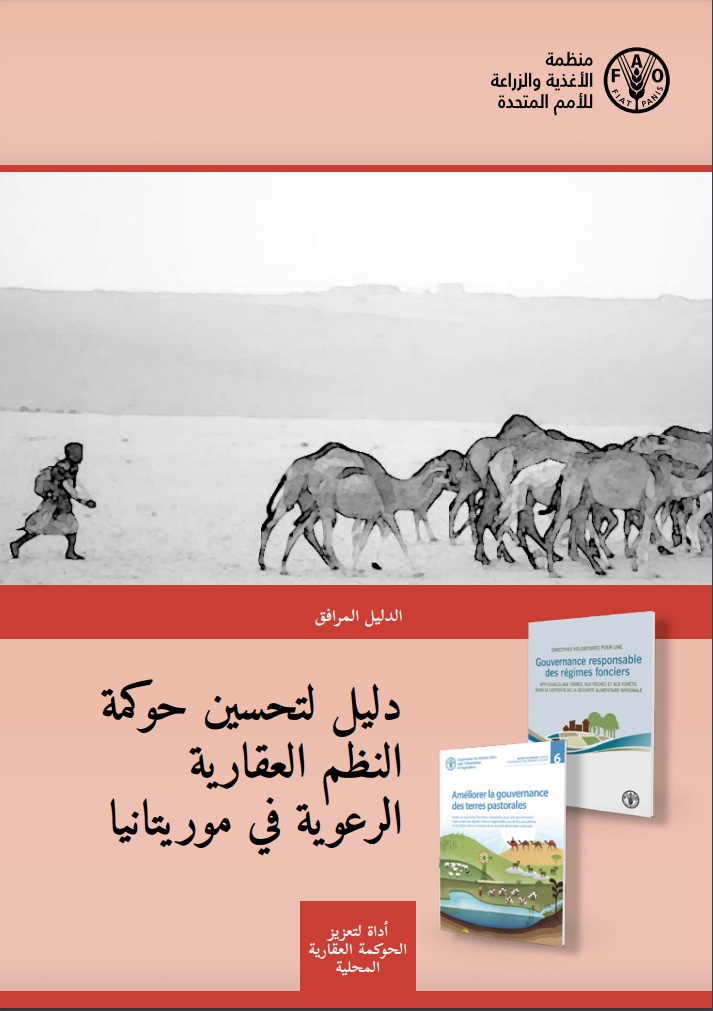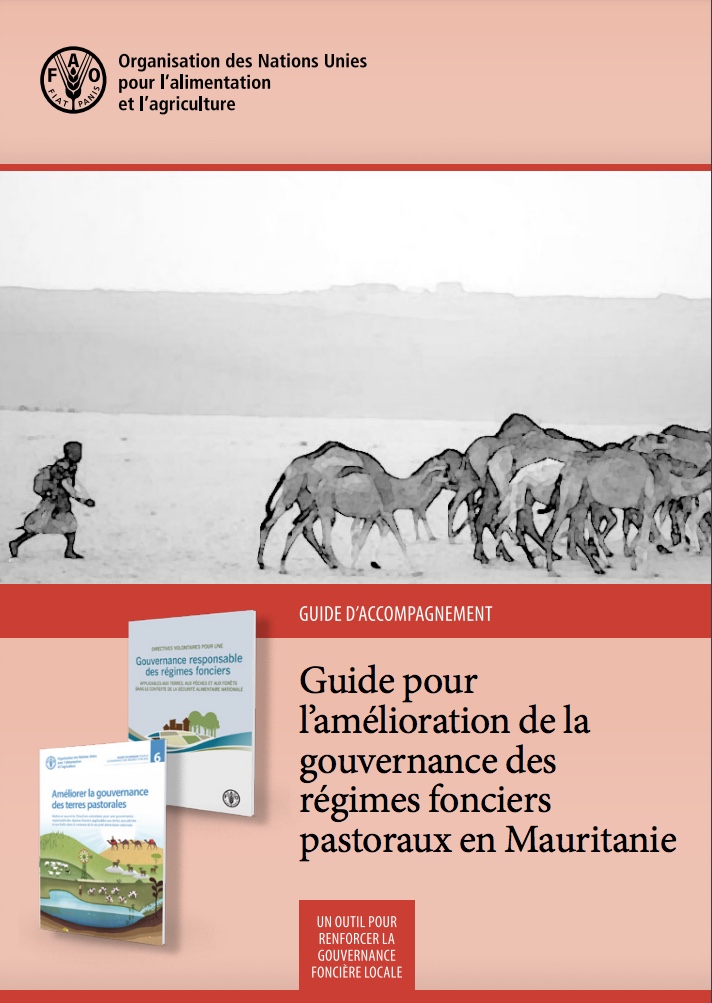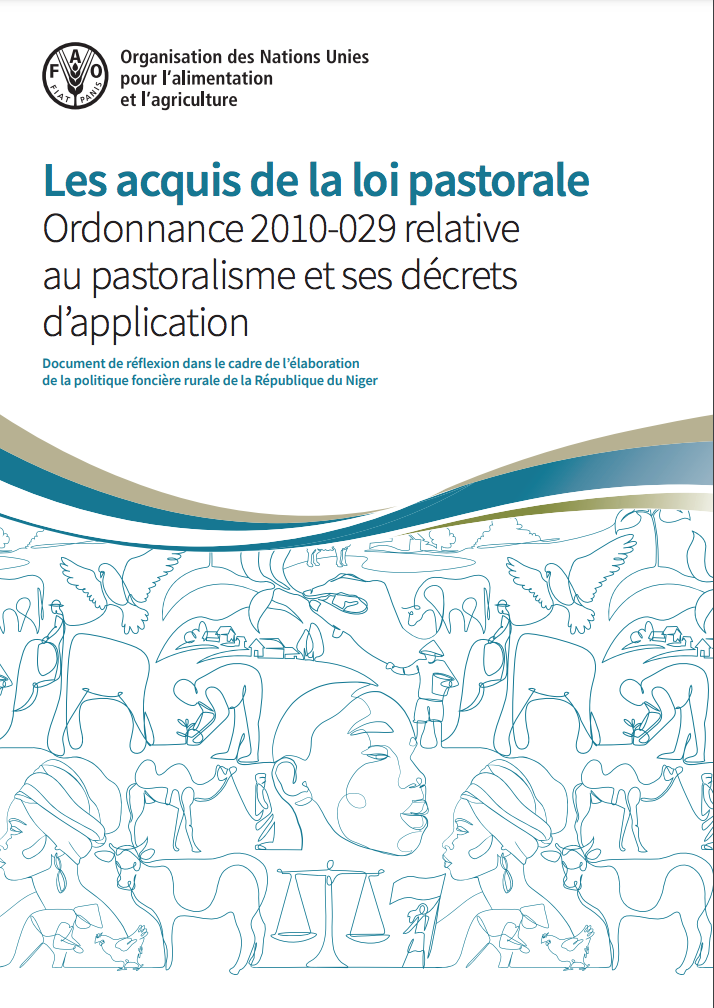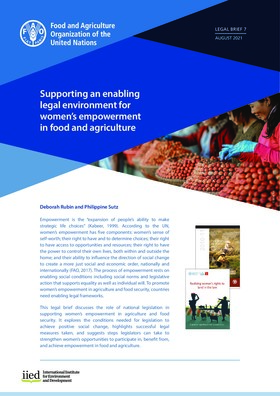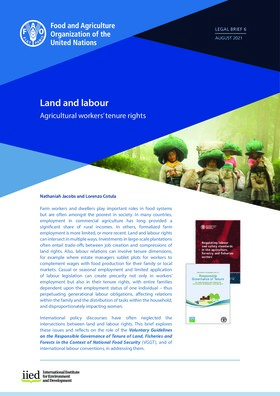Focal point
Location
The Food and Agriculture Organization of the United Nations leads international efforts to defeat hunger. Serving both developed and developing countries, FAO acts as a neutral forum where all nations meet as equals to negotiate agreements and debate policy. FAO is also a source of knowledge and information. We help developing countries and countries in transition modernize and improve agriculture, forestry and fisheries practices and ensure good nutrition for all. Since our founding in 1945, we have focused special attention on developing rural areas, home to 70 percent of the world's poor and hungry people.
Members:
Resources
Displaying 11 - 15 of 5074دليل لتحسين حوكمة النظم العقارية الرعوية في موريتانيا
هذا الدليل التوضيحي المبين بالصور هو ثمرة مسار تشاركي شامل لتعزيز قدرات اللجان الجهوية للانتجاع التي ضمت أكثر من تسعين مشاركا (منمون ورعاة وإدارات مركزية ومجالس جهوية وهيئات فنية جهوية ولامركزية تابعة لمختلف القطاعات الوزارية الأساسية ومنظمات غير حكومية على مستوى الولايات الرعوية)
Guide pour l’amélioration de la gouvernance des régimes fonciers pastoraux en Mauritanie
Ce guide en image est le fruit d’un processus participatif et inclusif de Renforcement des capacités des Comités régionaux de transhumance qui ont réuni plus de 90 participants (pasteurs/éleveurs, administration territoriales, conseils régionaux, structures techniques décentralisées des différents départements ministériels clefs, les organisations de la société civile, ainsi que les représentants de projets et les organisations non gouvernementales (ONG) au niveau des Willayas pastorales).
Les acquis de la loi pastorale Ordonnance 2010-029 relative au pastoralisme et ses décrets d’application
Document de réflexion dans le cadre de l’élaboration de la politique foncière rurale de la République du Niger.
Dans le contexte de la mise en œuvre des Directives volontaires pour une gouvernance responsable des régimes fonciers applicables aux terres, aux pêches et aux forêts dans le contexte de la sécurité alimentaire au Niger.
Supporting an enabling legal environment for women’s empowerment in food and agriculture
Empowerment is the “expansion of people’s ability to make strategic life choices”. According to the UN, women’s empowerment has five components: women’s sense of self-worth; their right to have and to determine choices; their right to have access to opportunities and resources; their right to have the power to control their own lives, both within and outside the home; and their ability to influence the direction of social change to create a more just social and economic order, nationally and internationally.
Land and labour
Land and labour rights can intersect in multiple ways. Investments in large-scale plantations often entail trade-offs between job creation and compressions of land rights. Also, labour relations can involve tenure dimensions, for example where estate managers sublet plots for workers to complement wages with food production for their family or local markets.







